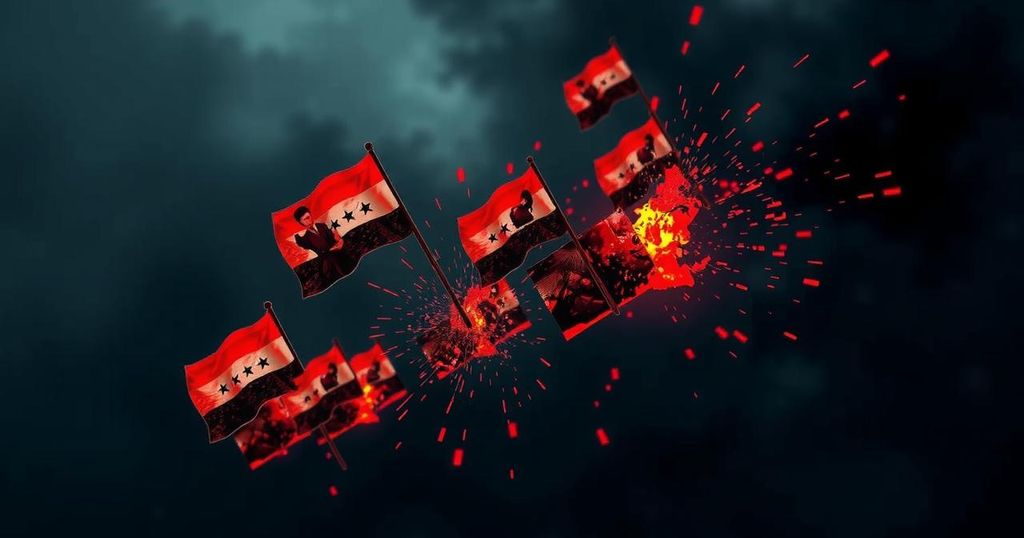Syria’s Recent Rebel Offensive Alters Geopolitical Dynamics
A recent offensive by Syrian rebels has led to significant territorial gains against President Bashar al-Assad’s forces in northwestern Syria, particularly around Aleppo, challenging the longstanding support from Iran and Russia. This development highlights the volatile and interwoven geopolitical landscape stemming from over a decade of conflict following a democratic uprising.
Amid recent developments in Syria, a significant rebel offensive has unfolded in the northwestern region, marking a pivotal moment in the ongoing conflict. Following a cessation of hostilities between Israel and Hezbollah in Lebanon, Syrian rebels have launched extensive attacks against the regime of President Bashar al-Assad, achieving control over crucial territories, including significant portions of Aleppo. This surge has forced both Iranian-backed militias and Russian forces to retreat from strategic positions, creating a new dynamic in the already complex geopolitical landscape of Syria.
The impact of this offensive resonates across the region, as the Syrian civil war, which began with a pro-democracy uprising in 2011, has led to a protracted struggle for power involving multiple international actors. Iran and Russia, which have historically supported the Assad regime, find themselves facing unexpected challenges as the rebels gain momentum. Russian airstrikes and Iranian militia support have been integral to Assad’s campaign, yet the recent developments indicate a shift in the power balance on the ground.
The Syrian Civil War commenced in March 2011, originating from citizens’ demands for democratic reforms. This uprising escalated into a broader conflict that has attracted various regional and international players, each with their own agendas. Over the years, Iran and Russia have emerged as key supporters of the Assad government, providing military assistance and strategic support in an effort to preserve their influence in the Middle East, particularly as they confront threats from both domestic and external opposition forces.
In summary, the recent rebel offensives in Syria mark a critical juncture in the ongoing conflict, illustrating the fluidity of the situation in the region. As Syrian rebels seize control of key territories and compel Iranian and Russian forces to withdraw, the geopolitical tensions are exacerbated, showcasing the precarious balance of power within the Syrian landscape. The interconnectedness of these conflicts underscores the challenges facing external powers as they navigate the complexities of their involvement in this prolonged and multifaceted war.
Original Source: www.nytimes.com




Post Comment